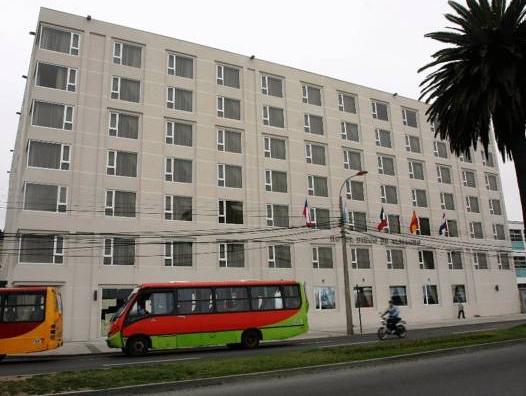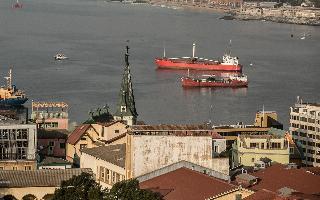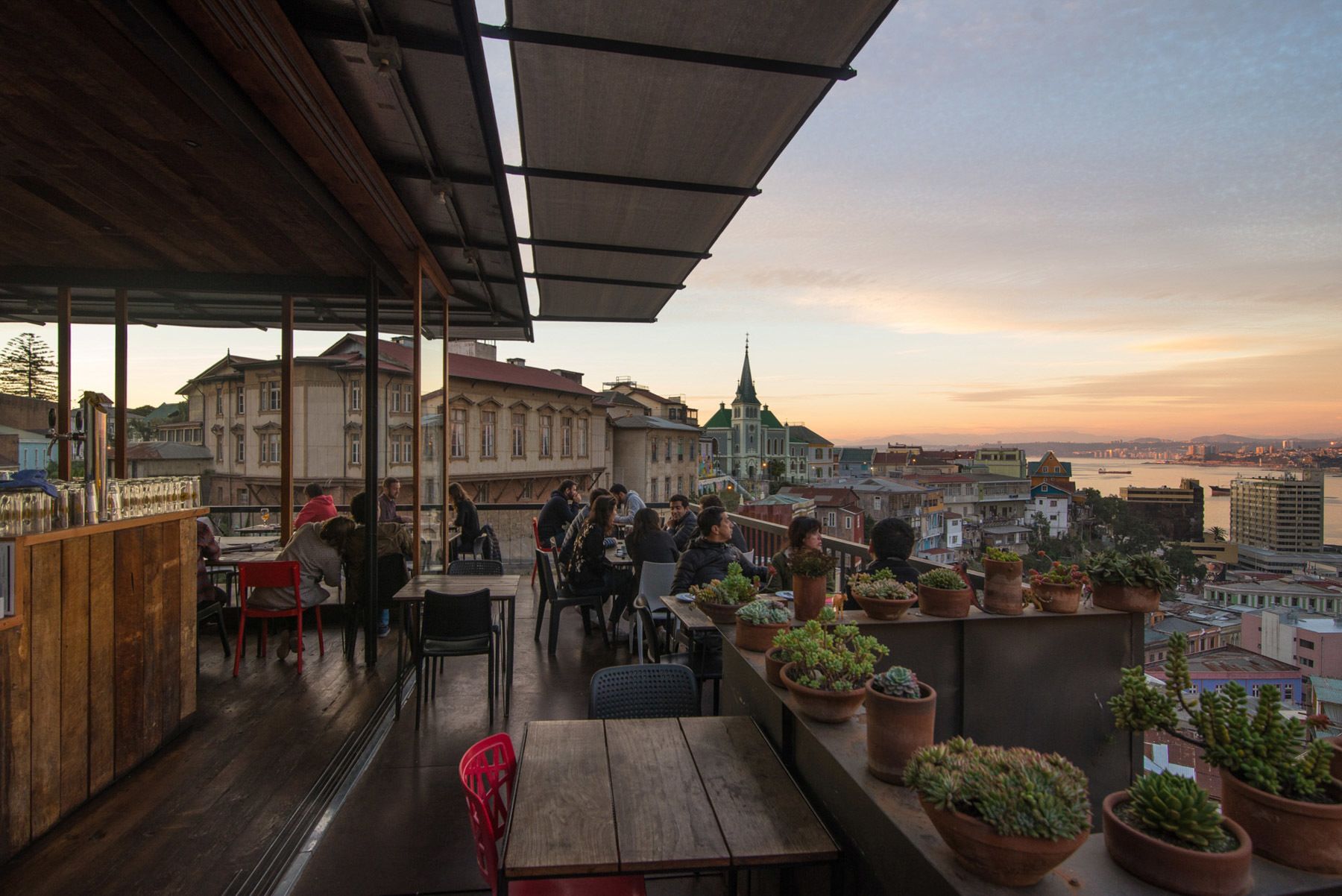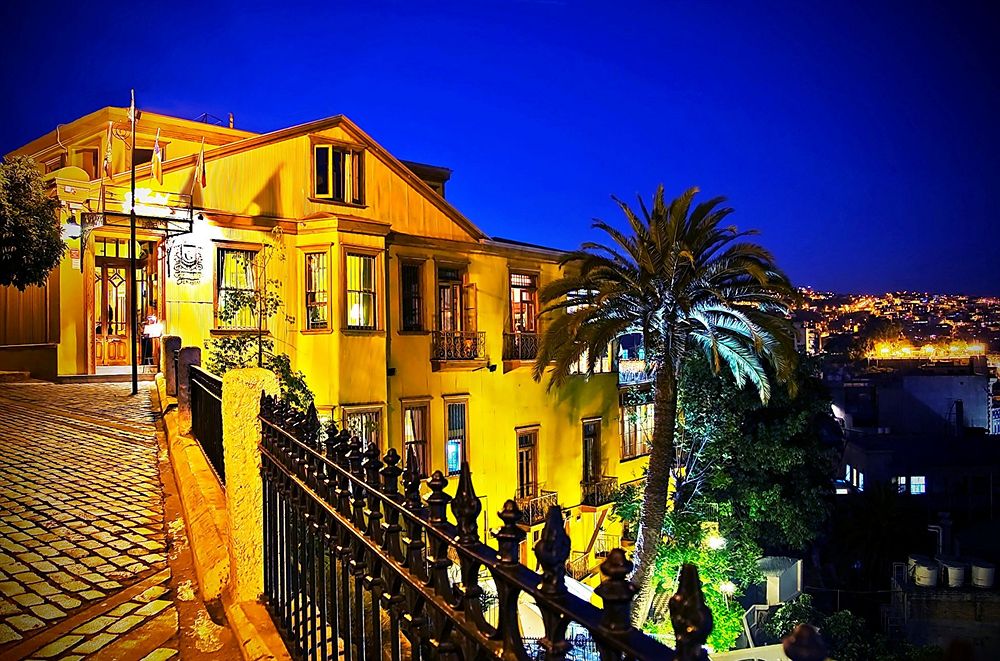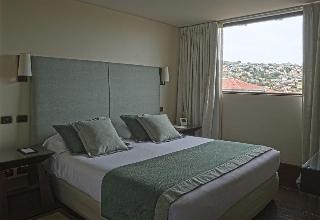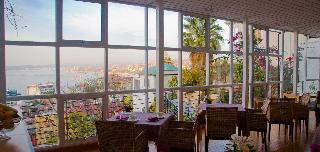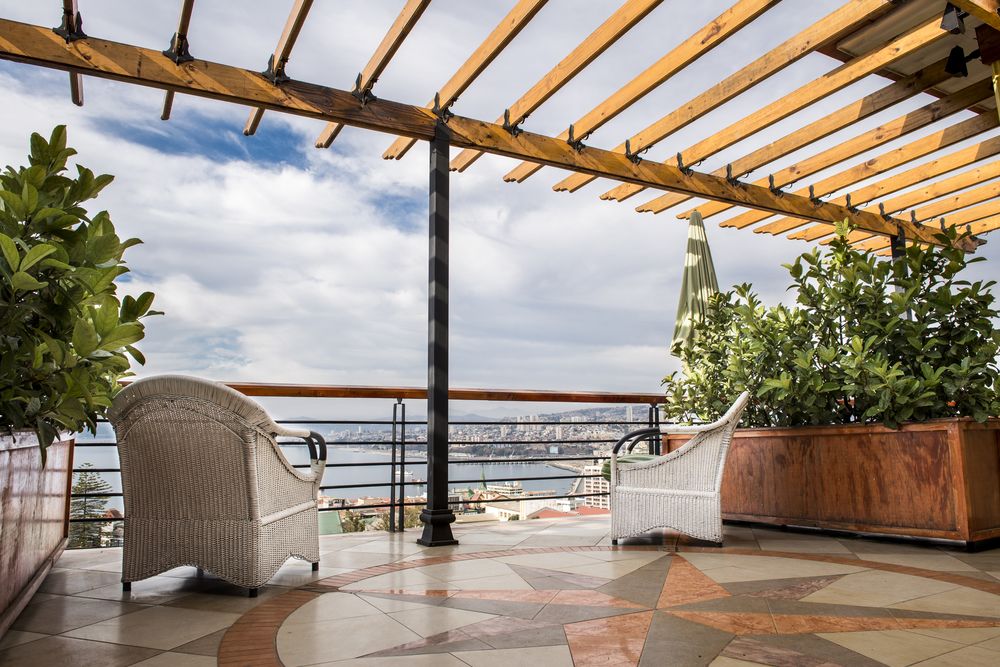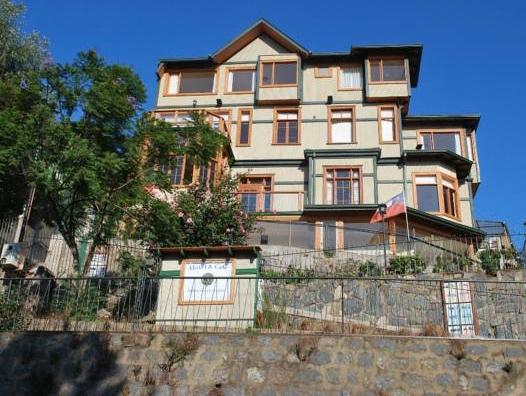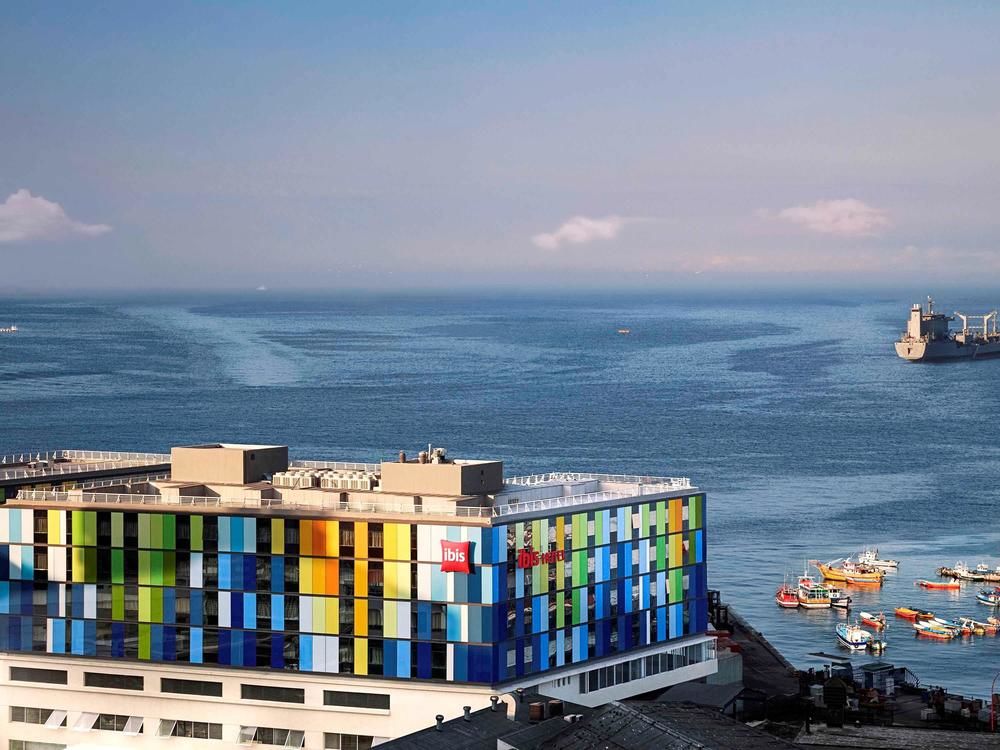
ヴァルパライソホテル検索結果
AIが見つけた軒のホテルの最安値をご覧ください。
ベストホテル
最安値のホテル
ホテル等級
AIおすすめ
ヴァルパライソベストホテル
ヴァルパライソ 最低価格のホテル
最高評価のホテル
ヴァルパライソにある5つ星ホテル
ヴァルパライソにある4つ星ホテル
ヴァルパライソにある3つ星ホテル
AIがおすすめする世界の旅行先
ヴァルパライソ近くのホテル情報
ヴァルパライソ 旅行に欠かせない情報
Valparaíso (; Spanish: [balpaɾaˈiso]) is a major city, seaport, and educational center in the commune of Valparaíso, Chile. "Greater Valparaíso" is the second largest metropolitan area in the country. Valparaíso is located about 120 km northwest of Santiago by road and is one of the South Pacific's most important seaports. Valparaíso is the capital of Chile's third most populated administrative region and has been the headquarters for the Chilean National Congress since 1990. Valparaíso has seven universities.
Valparaíso played an important geopolitical role in the second half of the 19th century, when the city served as a major stopover for ships traveling between the Atlantic and Pacific oceans by crossing the Straits of Magellan. Valparaíso mushroomed during its golden age, as a magnet for European immigrants, when the city was known by international sailors as "Little San Francisco" and "The Jewel of the Pacific". In 2003, the historic quarter of Valparaíso was declared a United Nations Educational, Scientific, and Cultural Organization (UNESCO) World Heritage site.
Notable features include Latin America's oldest stock exchange, the continent's first volunteer fire department, Chile's first public library, and the oldest Spanish language newspaper in continuous publication in the world, El Mercurio de Valparaíso.
The second half of the twentieth century was unfavorable to Valparaíso, as many wealthy families abandoned the city. The opening of the Panama Canal and reduction in ship traffic dealt a serious blow to Valparaíso's port-based economy.
Over the first 15 years of the twenty-first century the city reached a recovery, attracting artists and cultural entrepreneurs who have set up in the city's hillside historic districts. Today, many thousands of tourists visit Valparaíso from around the world to enjoy the city's labyrinth of cobbled alleys and colorful buildings. The port of Valparaíso continues to be a major distribution center for container traffic, co
 時間 UTC-03
時間 UTC-03 通貨 CLP
通貨 CLP 言語 Spanish
言語 SpanishStaypiaだけの特別な特典
リアルタイムホテル最安値比較
AIが見つけたin ヴァルパライソの軒のホテルのリアルタイム最安値を簡単に比較検索できます。
316万軒のホテルを最安値で予約
最低価格に最大31%追加メンバーシップ割引でさらにお得にご予約いただけます。
自分だけの
AIがリアルタイムで更新するヴァルパライソ旅行情報で便利に旅行を準備しましょう。
よくある質問
ヴァルパライソで最も人気のあるホテルは Ibis Valparaiso, Hotel Diego de Almagro Valparaiso, Casa Galos Hotel & Lofts です。
ヴァルパライソで最も人気のある5つ星ホテルはPalacio Astoreca, Zero Hotel Valparaiso, Hotel Boutique Acontraluzです。 ヴァルパライソ 評価順にホテルを見る
一般的なホテルの場合、客室予約はキャンセル締切日前まで無料返金が可能です。キャンセル締切日以降は手数料が発生する場合がありますので、ホテルバウチャーまたはメニュー>マイ予約でキャンセル締切日をご確認ください。
ステピアでは、AIが収集した316万件のホテルの最安値はもちろん、会員限定の追加割引価格で人気ホテルを予約することができます。
